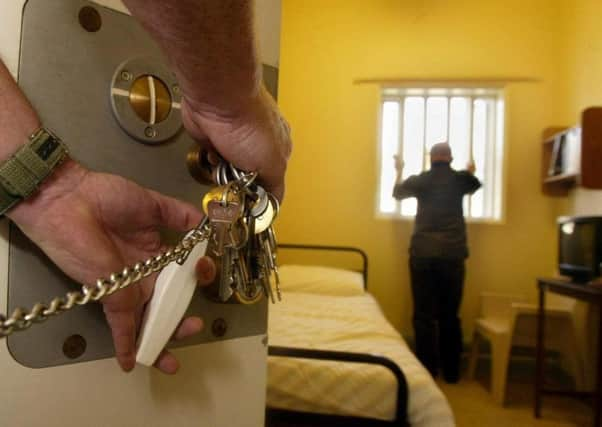£1.1m in compensation to inmates kept in prison too long


A report published today reveals a growing number of outstanding parole hearings waiting to be heard nationwide, as a result of a 2013 Supreme Court ruling.
It means the amount paid out to prisoners kept in jail longer than necessary has risen sharply, with last year’s total of £554,000 bringing the figure for compensation to £1.1m since 2011-12.
Advertisement
Hide AdAdvertisement
Hide AdMore than 450 compensation claims were made in 2015/16, with inmates able to claim as much as £650 for every extra month spent in prison.
According to the National Audit Office, half of the inmates left waiting for hearings for more than 90 days are dangerous violent or sexual offenders on imprisonment for public protection (IPP) sentences.
IPPs were created by the Criminal Justice Act 2003 and used from April 2005. They were designed to protect the public from serious offenders whose crimes did not merit a life sentence.
The offender serves a set number of years in prison followed by an indefinite period where they can only be released if the parole board no longer considers them a risk.
Advertisement
Hide AdAdvertisement
Hide AdBut over six months last year, nearly 400 such cases were delayed by more than a year before a parole hearing was completed.
Though IPP sentences were scrapped in 2012, as of last year around 4,000 IPP prisoners were still in the system, with around three-quarters having already served their minimum term.
It was claimed last year that convicts serving IPP sentences are turning to self-harm as they see no end to their detention.
And in 2014, it was suggested that the high proportion of IPP inmates at HMP Hatfield in South Yorkshire was contributing to a spate of escape bids by inmates.
Advertisement
Hide AdAdvertisement
Hide AdAmong those given IPP sentences in recent years in Yorkshire include a predatory sex offender from Bradford who kidnapped and molested a six-year-old girl and a former rugby league club historian from Batley who almost battered a friend to death in anger at losing his job.
The National Audit Office said in its report: “Since 2011-12, the Board has paid out £1.1 million in compensation as a result of delays in hearings.
“In 2015-16, prisoners were paid £554,000 in compensation for delayed hearings. This had increased from £87,000 in 2012-13.
“As the board attempts to reduce the backlog of outstanding cases, it will crystallise its liability for an increased number of potential compensation claims, and compensation costs may increase.”
Advertisement
Hide AdAdvertisement
Hide AdThe backlog developed because of a court case known as the ‘Osborn ruling’ in 2013, which increased the likelihood of longer and more expensive oral, rather than paper, hearings being held for prisoners.
This meant that the number of oral hearings carried out by the Parole Board increased from 4,628 in 2012-13 to 6,872 in 2014-15. At its peak in January 2015, there were more than 3,000 outstanding cases.
The Parole Board, which is responsible for assessing the risk inmates pose to the community, wants to cut the number of serving IPP prisoners to 1,500 by 2020 and the overall number of outstanding cases to 1,200 by the end of this year.
It launched a strategy to tackle the backlog last year and has developed a new system which has allowed it to process an average of 170 more cases each month.
Advertisement
Hide AdAdvertisement
Hide AdThe Chair of the Parole Board, Professor Nick Hardwick, said: “I am pleased the NAO has recognised the huge challenges the Parole Board faced as it dealt with more cases and more oral hearings with fewer Parole Board members.
“As a result, the backlog of outstanding cases grew, with unacceptable delays for victims and prisoners. Given the scale of the challenge it has taken time to put things right.
“I am pleased the NAO recognises the progress we have made. We have a new strategy, have recruited over a 100 new members and our backlogs are down by over a third.
“There is more to do and the NAO report helpfully highlights a number of areas for us to focus on. I am confident we will continue to make progress whilst making sure that in each of the approximately 7,000 cases we decide every year we protect the public whilst treating prisoners fairly.”